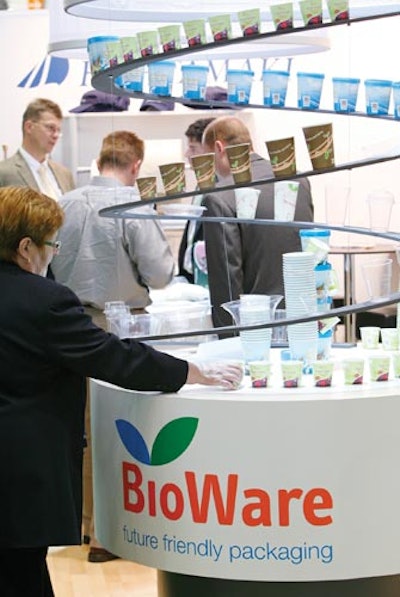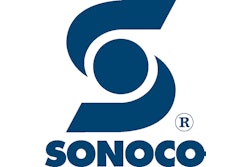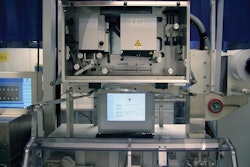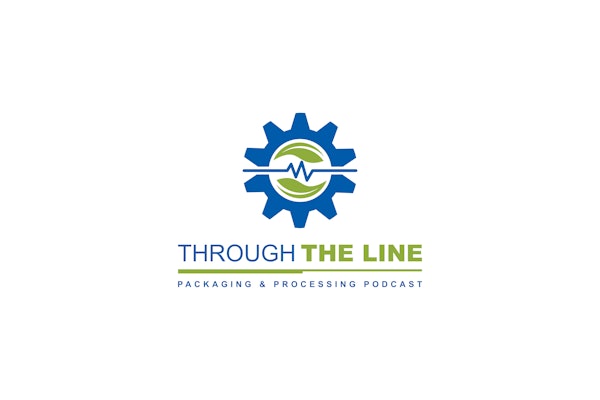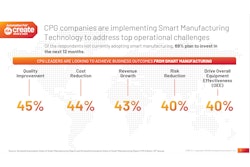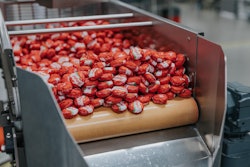Sustainability is steadily gaining in importance for consumers seeking ethically and ecologically impeccable products, packaged in a resource-conserving manner that ensures their perfect condition when purchased. This is a major challenge to packagers, as the industry wants to save on materials without compromising the stability of the packaging in any way.
Unilever, for example, plans to double its worldwide sales from the current €40 billion by 2020, and simultaneously halve its carbon dioxide emissions by improving packaging and production efficiency. By 2020, Unilever aims to integrate half a million small farmers and traders in developing countries into its supply chain. “We intend to be a sustainable company in every sense of the word,” says Unilever CEO Paul Polman.
Unilever’s motivation is not exclusively nature conservation, but also a matter of economics. For many consumers, sustainability has become an important purchasing criterion. Buyers who formerly seldom inquired about origin, type of production and packaging now put a high priority on ecologically and morally “clean” goods. U.S. market analyst Pike Research estimates that global sales with sustainable packaging will almost double between 2009 and 2014, from $88 to $170 billion. “The environmental awareness of consumers has significantly increased as a consequence of the climate debate,” explains Pike Research President Clint Wheelock.
Greener lifestyles
In addition to climate protection, social aspects play an increasingly important role. Modern consumers want to lead a more healthy life, and therefore value natural food products that are safely packaged and offer a pure taste. For them, it is a matter of growing importance that product manufacturers demonstrate social engagement and offer “fair trade” goods.
“We see a trend towards ethical consumerism,” declares analyst Jens Lönneker of the Cologne market research company Rheingold. He observes that fair trade is firmly established among LOHAS (consumers who aspire to a Lifestyle of Health and Sustainability). Now it is spreading to the “+18-year-olds,” who prefer fair trade beer or lemonade in chic bottles over more conventional soft drinks or lager.
For the industry, the sustainability trend is both a curse and a blessing. It has to develop new products and campaigns, incurring high costs, yet the increasing demand for sustainable products promises economic growth. This is why the financially strongest big companies such as Coca Cola, Kraft Foods, and Unilever pursue comprehensive sustainability strategies. They support environmental, nature, and aid organizations or provide development aid themselves. They also invest in more efficient production lines and packaging. “We will cut our materials consumption by a third by 2020,” promises Unilever’s Polman.
Packaging manufacturers help the industry to reduce their ecological footprint by designing new packaging and developing the associated production processes, which is no easy task. Raw material consumption needs to be reduced by using thinner and smaller amounts of resource-intensive materials, without compromising package integrity and stability.
“The top priority is protection of the packaging contents,” says Stefan Glimm, managing director of the German Aluminum Industry Assn. (GDA). There is a good reason for this. According to the European Organisation for Packaging and the Environment (EUROPEN), the value of the resources input into and held in food products is much higher than the value of the packaging that protects these products. Product losses resulting from inadequate packaging therefore account for more carbon dioxide emissions than are saved by eliminating surplus packaging.
In developing countries, food losses are a big problem: According to EUROPEN, 40% of the goods in the supply chain are lost. Better protection of products in these countries could therefore considerably ease the burden on the environment. At the interpack 2011 trade fair in Düsseldorf, Germany, food protection will be one of the key themes. The special exhibition Save Food, organized together with the Food and Agriculture Organisation (FAO) of the United Nations, will show how the individual elements in the value chain can make a contribution, in terms of packaging, logistics, and transport, to cutting worldwide food waste.
Safety is the top priority
Packaging manufacturers have come up with many innovations to demonstrate that safety and ecology need not be mutually exclusive. Sonoco for example, will exhibit its new True Blue Line at interpack 2011. According to company spokesman Jeff Schuetz, it is just as stable as its predecessors but contains less material or can be more easily recycled.
Kraft Foods recently started to use Sonoco-designed containers made of recyclable board instead of tins for its coffee brands Maxwell House, Nabob, and Yuban.
Another example is Unilever, which has redesigned the plastic bottles for its Suave-brand hair care products with Sonoco containers that employ 16% less material. And their new curved form is designed to be more stable than their predecessors.
The German Plastics Packaging Industry Assn. (IK) views such innovations as a confirmation of its own position that plastic is suitable for sustainable packaging. “It is very versatile,” declares Isabell Schmidt, IK expert on the environment and sustainable development. Plastic provides protection, is transparent, and its low weight enables savings to be achieved in transport costs and carbon dioxide emissions.
Besides plastic, paper, board, glass, and metal (e.g. aluminum) are also candidates for a sustainable packaging strategy, as each of them offers its own advantages.
A study by the Dutch research institute DE Delft shows that paper and board, for example, have a smaller carbon footprint than most other packaging, due to factors such as efficient production and lower transport emissions. The carbon dioxide equivalent of paper and related materials is 676 kilograms carbon dioxide per metric ton of material, whereas that of other packaging materials is at least 1,000 kilograms.
Glass, on the other hand, cannot boast a low weight, but is returnable, recyclable, and safe. “Glass is inert, so that practically no interaction can occur between contents and packaging,” explains Johann Overath, managing director of the Federal Assn. of the German Glass Industry. In addition, it is made from raw materials that occur in sufficient quantities in nature. This appeals to consumers who value pure taste and want to consume products from “healthy” packaging. According to a survey by the European Container Glass Federation (FEVE), 75% of Europeans prefer glass as a packaging material, as it contributes to a healthy lifestyle.
Tinplate and aluminum also protect food products and can be easily recycled. The recycling rate of aluminum is 82.3%; 96% for aluminum cans. “This rate will be boosted still further by closing the gaps in recycling loops,” says GDA’s Glimm. The sector also wants to cut the consumption of materials according to Glimm.
Bioplastics on the rise
Manufacturers of established packaging materials must expect increasing competition from bioplastics. These may not be as versatile as conventional oil-based plastics, but they make up for this with ever improving properties. The British company Innovia Films recently launched Natureflex, a 100% compostable, biodegradable plastic film for food products. According to head of marketing Andy Sweetman, this multilayer biofilm forms a barrier against moisture and gases so that packaged products such as biscuits retain their crispness over a long time.
German bioplastics producer FKuR Kunststoff also focuses on barrier properties. A new development from FKuR is biopackaging suitable for low temperatures, which is used for frozen food. The rapid advance of bioplastic packaging will also be reflected at the interpack trade fair. At interpack 2005, only 250 square meters were devoted to this theme within a special exhibit but at interpack 2011 it will cover about 2,000 square meters of exhibit space.
Sustainability even in production
Manufacturers of packaging machinery can also contribute to further rapid cuts in the cost of packaging. The Food Processing and Packaging Machinery Assn. of the German Engineering Federation (VDMA) sees opportunities for achieving savings not just in packaging materials. A major contribution to sustainable production can be made by reducing the energy consumption of packaging machinery. For instance, decentral servo technology, which functions more dynamically and efficiently than large drives, could be used.
VDMA claims that the expenditures for purchasing such machinery can be recouped through lower energy consumption. Product manufacturers who put their faith in sustainability therefore profit first of all at the production stage, even before their products reach the point of sale.
This article was supplied by interpack Trade Fair. For more information on the May 12-18, 2011 event, visit www.interpack.com
